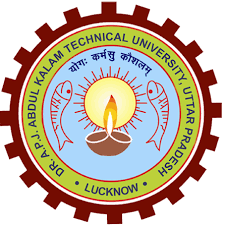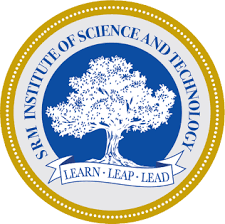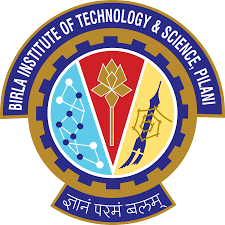Biological engineering is a growing field and is one of the fastest-growing fields in the country. This Ph.D. program focuses on developing advanced skills in biomedical engineering and integrating research and teaching into a holistic education. Students will receive a comprehensive education in equal parts engineering, mathematics, and life sciences. They will be trained to become leaders in research and development. They will learn how to analyze quantitative data and formulate hypotheses that pertain to biological systems.
A Ph.D. in Biological Engineering allows students to conduct research on the interface between biology and engineering. These engineers conduct research in the areas of bioprocesses, environmental microbiology, biomaterials, tissue engineering, bioelectricity, biomechanics, and biomedical imaging. Depending on their area of interest, they may also be able to conduct cutting-edge research alongside faculty members.
Graduate students pursuing a Ph.D. in Biological Engineering have the career opportunity to choose from a wide range of research areas. Most Ph.D. programs in biomedical engineering focus on the application of biomechanical and biological engineering expertise. Students can choose to specialize in bio-instrumentation, multi-scale modeling, and bio-signals. They can choose between teaching introductory courses at undergraduate and graduate schools, presenting research grant applications, or focusing on basic research.
Ph.D. in Biological Engineering Egg. Eligibility
Candidates who want to take admission in Ph.D. must have a post-graduate degree in Ph.D. in Biological Engineering and its relevant discipline with at least 55% marks from a recognized university and must have passed the national level entrance examination or university level entrance examination. National level entrance exams like UGC NET / UGC CSIR NET / GATE / SLET or University entrance exams consist of written tests and personal interviews.
The Benefits of a Ph.D. in Biological Engineering
This degree prepares students for a wide range of careers in biomedical engineering. Many jobs in this field require at least a bachelor's degree in biomedical engineering and at least a few years of related work experience. However, the Ph.D. program enables students to take a more hands-on approach to research by gaining an in-depth understanding of the clinical environments. In addition, it provides the tools necessary to create life-saving technologies. Additionally, this degree prepares students for a career in academia and in the industry.
While many traditional engineers are looking for careers in biomedical engineering, a Ph.D. in biomedical engineering can give them a distinct advantage. While a master's degree in biomedical engineering is still needed for many jobs, a Ph.D. will give them an edge in the job market. The doctoral program is geared toward training doctoral-level biomedical engineers. The degree program is flexible, with classes starting at 3:30 pm and going on until 4:30 p.m.
The Career and Job Opportunities for Ph.D. in Biological Engineering
Biomedical engineering is an exciting field with many exciting career possibilities. Graduates can go on to work in fields like rehabilitation research, tissue engineering, and cellular/tissue engineering. These fields are expanding rapidly as scientists work to improve human health and longevity through medical innovations. Job salaries for biomedical engineers can exceed seventy thousand dollars a year. A career in this field can also lead to exciting research careers in academia, industry, and government.
Biomedical engineers use artificial and natural materials to develop products and processes for human health. Their products and techniques are useful in diagnosing diseases and developing drugs. Manufacturing engineers work to improve products and create low-cost high-quality products. Typically, these products are used in the health and medical industries. You can also become a biomedical engineer. A Ph.D. in biomedical engineering can lead to a career in this field.
The field of biomedical engineering combines a love of science and engineering. With advances in technology and a growing population, the demand for biomedical engineers is increasing.
The Future Scope of the Ph.D. in Biological Engineering
The Ph.D. program in biomedical engineering requires students to conduct independent and creative research, which requires quantitative analysis. Students should also demonstrate strong communication skills, which include the ability to present the results of a comprehensive research project and logical argumentation. In addition, they should have the ability to collaborate with graduate students in other departments. A doctorate in biomedical engineering offers the flexibility to pursue a career in a variety of areas, including healthcare, life sciences, and the environment.
Another field of biomedical engineering combines engineering expertise with medical needs. Applied biomedical engineering graduates develop innovative methods and technologies for diagnosing and treating medical conditions. They can also apply advanced technology to complex problems in the medical field. Depending on their area of study, biomedical engineers may be called upon to design instruments and implement new procedures. They may also work as researchers and developers of new drugs.
The future scope of the Ph.D. in Biological Engineering consists of numerous areas. The major areas in biomedical engineering are biomedical engineering, biomedical sciences, and applied biology. Clinical engineers work in a medical setting to develop and evaluate new medical equipment. They may also collaborate with physicians and other health care providers to develop new techniques and devices. The field of biomedical engineering is a broad field with many opportunities.
Ph.D. Research Programme duration
The Ph.D. in Biological Engineering course is a minimum of 3 years and a maximum of 5 years duration. This depends on the university offering the course.
Fees for research program for Ph.D. in Biological Engineering
The average fee for Ph.D. in Biological Engineering degree is between INR 50000 and INR 500000.
 5 Years
5 Years
 PhD
PhD
 Research
Research




















 back
back